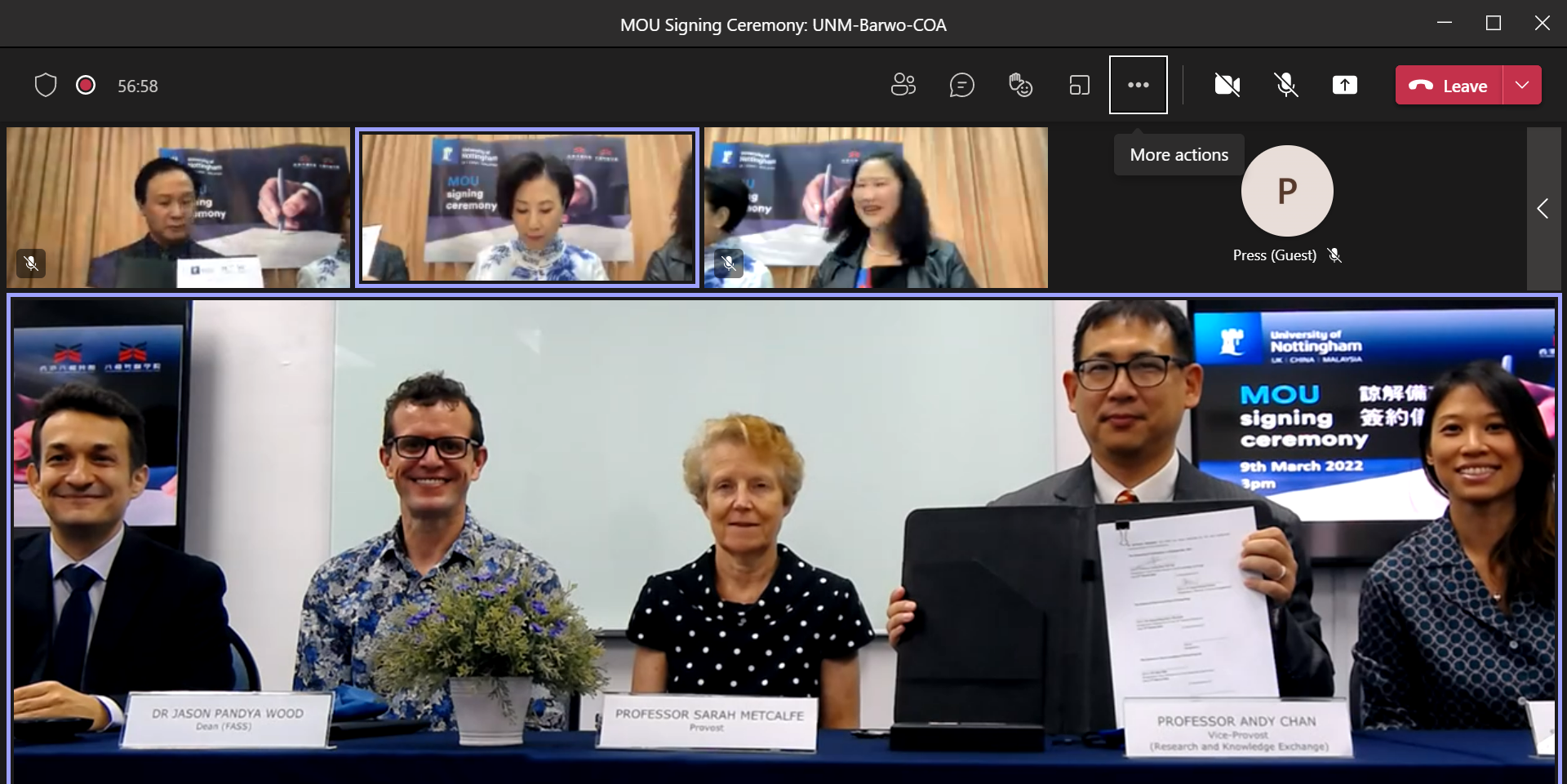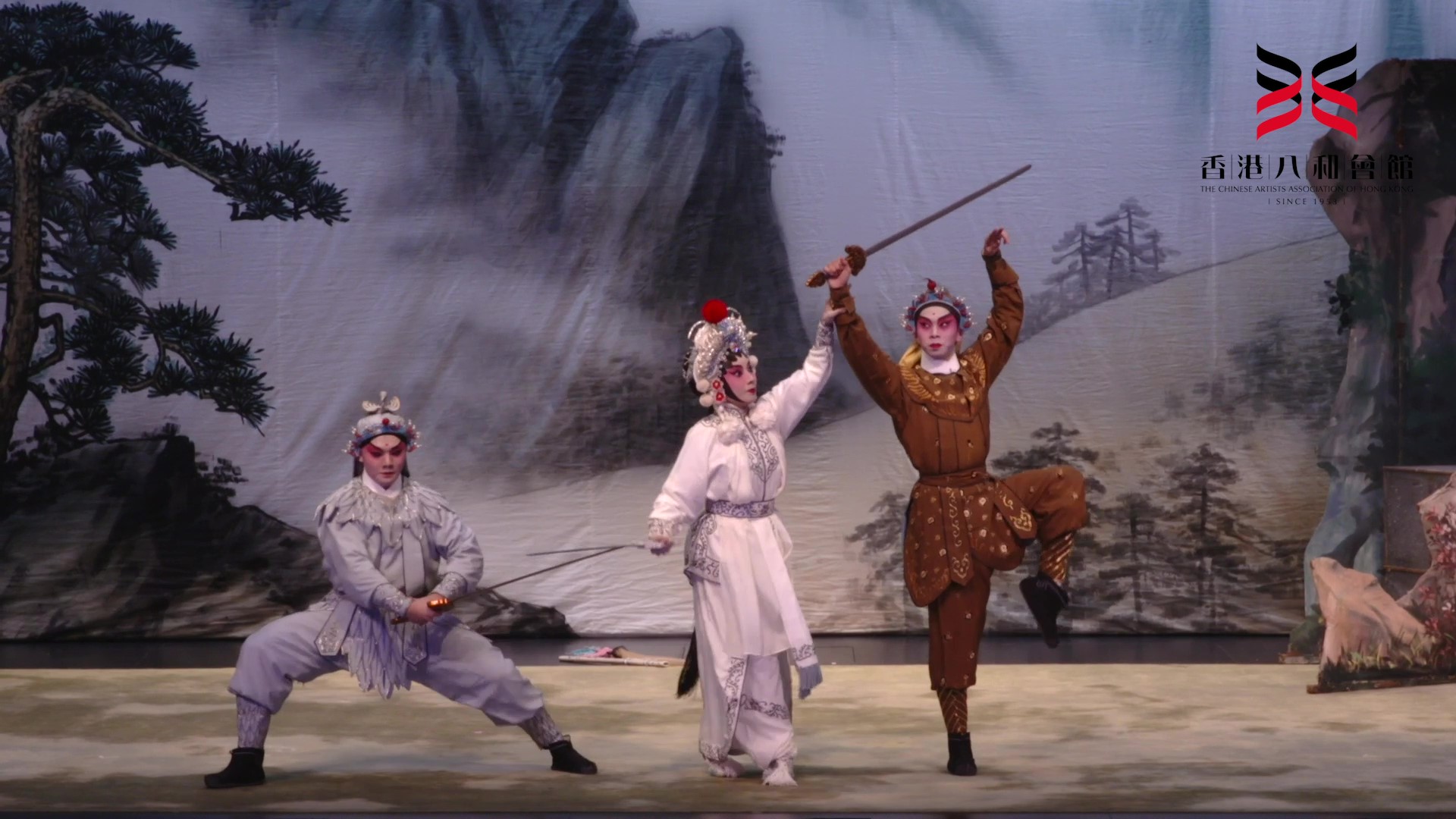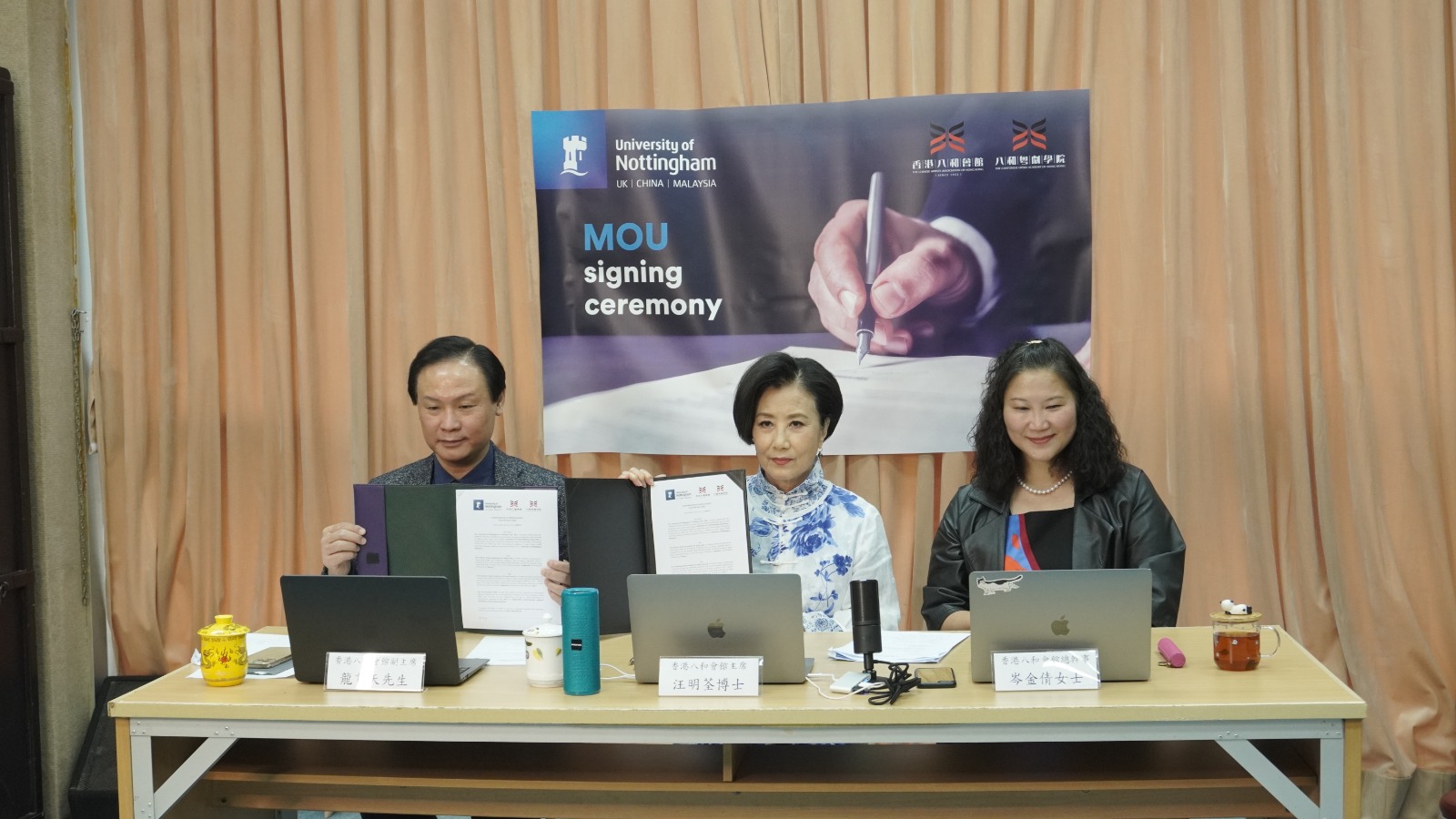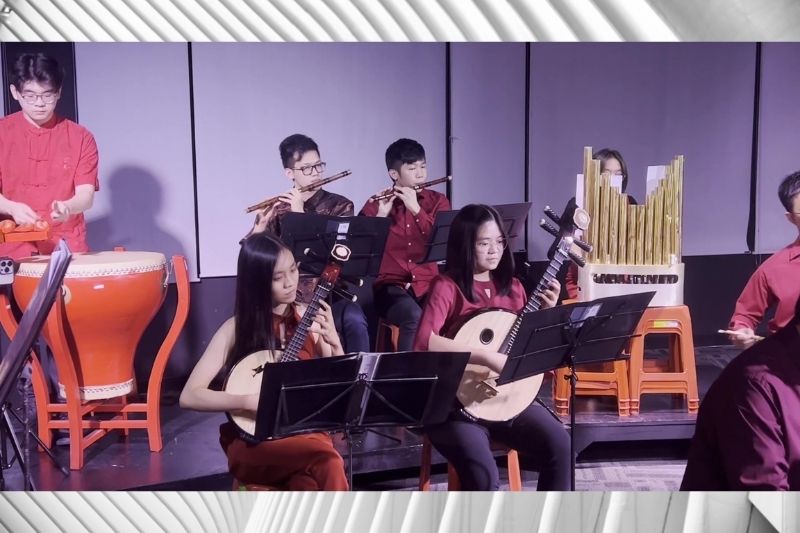Selangor, 16 March 2022 – The beauty of art is that it is universal, not limited to any one race, culture, or community. For University of Nottingham Malaysia (UNM), an institution that prides itself for its inclusivity, embracing the traditional arts is one of many steps towards producing global thinkers. Towards this end, UNM has inked a two-year Memorandum of Understanding
(MoU) with The Chinese Artists Association of Hong Kong (Barwo) and the Cantonese Opera Academy of Hong Kong Ltd (COA) to strengthen its performing arts education presence in the region.

Through this partnership with Barwo and COA, UNM hopes to build a long-lasting relationship with international artistic communities and individuals, to offer students a more valuable educational experience.
“UNM is extremely proud to partner with The Chinese Artists Association of Hong Kong and the Cantonese Opera Academy to perpetuate the important art form that is Cantonese Opera,” said UNM’s Vice Provost of Research and Knowledge Exchange, Professor Andy Chan. “As a global institution, we believe that by fostering cross-cultural relationships we will be able to expose our students to the history, culture and practices of a multitude of nations. This is crucial in teaching our young minds to think more globally and thus, more creatively.”
“We are grateful for this collaboration with Malaysia, home to many historical and traditional theatres, as it will allow us to expose our students to a multitude of cultures,” said COA’s Vice chairperson, Mr. Lung Koon-tin.

The partnership also falls in line with UNM’s intention to engage with local and international Cantonese Opera communities. UNM believes this experience will help expose their communities to numerous skills and values that are highly beneficial for their development, whether artistically or wholistically. This is especially true with Cantonese Opera, an invaluable part of the world’s heritage which not only originates from a rich history, but also involves highly technical choreography and a distinct visual aesthetic, unique to any other culture.
Barwo’s Chairperson, Dr Elizabeth Wang Ming-chun adds, “With this, we hope to share the tradition with future generations and across different cultures, so that more people can experience the beauty of traditional Cantonese opera”.
“This will benefit more than just our Faculty of Arts and Social Sciences (FASS) students. For all who walk through our doors, we can only hope that when they leave, we’ve provided the right nurturing environment they need to then serve the world,” Professor Chan explained.

The MoU was signed by UNM’s Vice Provost of Research and Knowledge Exchange, Professor Andy Chan, Barwo’s Chairperson, Dr Elizabeth Wang Ming-chun and COA’s Vice-chairperson, Mr. Lung Koon-tin. The signing ceremony was held in the presence of UNM’s Dean of Faculty of Arts and Social Sciences, Dr Jason Pandya Wood and COA’s Chief Executive, Ms Alisa Shum.
The partnership with Barwo and COA will benefit all parties and potentially offer a dedicated platform for shared projects, and professional and academic research opportunities. Students of the Faculty of Arts and Social Sciences (FASS) and the Bachelor of Arts (BA) International Communications Studies with Performing Arts (ICSwPA) too will benefit from exchange, internship, transfer and professional experience opportunities. Lastly, following the Government’s aspiration to establish Malaysia as the hub of choice for international education, UNM also hopes it will draw more international students to Malaysia to further their studies.
According to UNESCO, performing arts is an intangible element of cultural heritage that is at threat of being lost to modernisation and standardisation, with many abandoning the traditional arts to conform to social norms. As modern performing arts itself originates from the many cultural practices from all over the world, by underappreciating traditional arts, we risk losing sense of what makes the performing arts industry so unique. UNM believes it is their duty to educate the youth and keep traditions alive for generations to come.










